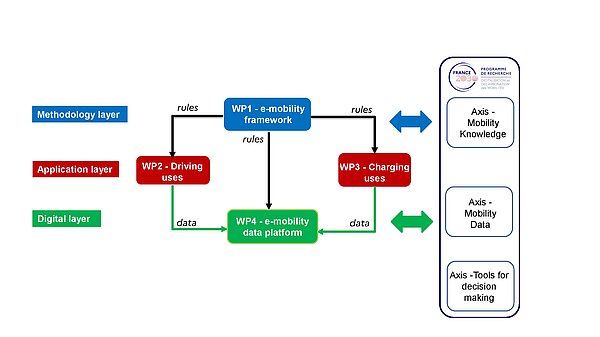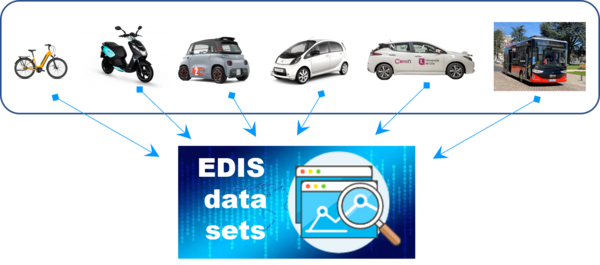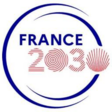Electro-mobility Data for Interdisciplinary Studies
The EDIS project aims to provide a unique and common interdisciplinary framework to collect technical and humanities data on e-mobility. This framework will define various e-mobility indicators before developing experimental tests (technical data) and surveys (humanities data) to comply with these indicators. This framework will be applied to a panel of real e-vehicles (from e-bike to e-bus, including e-car) and charging infrastructures (from photovoltaic-based ones to fast charging stations) for experimental tests to get technical data (e.g., velocity profiles, energy consumption, battery lifetime). Different surveys will also be conducted on the drivers for various practices (from commuting to professional trips) to get humanities data (e.g., perceptions, barriers). The collected dataset will be integrated in an open FAIR (Findable, Accessible, Interoperable and Reusable) digital platform for computing and multi-visualization of the indicators (e.g., total cost of ownership or greenhouse gases for a type of use and a defined possession time).
The main challenge is to merge in a unified way, in the same digital platform, technical and humanities data on e-mobility. The ongoing practices of data collection of the different disciplines will be revisited to comply with the defined indicators and to enable a real coupling of technical and humanities data. Moreover, the digital architecture and the multi-visualization of data and indicators, will be considered from the definition of the common framework to enable a relevant and fluent management of these heterogeneous data. In a top-down phase, the developed framework will be applied on driving and charging use cases to deploy the open data platform. In a bottom-up phase, the collection and digital platform experiences will enable feedback to refine the multidisciplinary framework.
The main outcomes of EDIS are 1) a flexible framework to collect e-mobility data on various cases and 2) an open data platform on e-mobility with a first dataset. Both tools will enable to completed the data platform by new experiences and indicators. This data platform will be linked to datasets from other data mobility platforms (including the data factory of MOBIDEC) and used by decision-making projects to help public authorities to drive the necessary transition of mobility.
In order to achieve this goal, a multidisciplinary consortium has been set up from 2 interdisciplinary groups: CUMIN (Campus of University with Mobility based on Innovation and carbon Neutrality, Lille) and G4M (Grid for Mobility, Lyon area) that already have experiences in e-mobility measurements and surveys (more than 200 tests and interviews). The consortium is composed of 4 Sciences & Technology Labs and 5 Social & Human Sciences Lab and is supported by MEL (Metropole Européenne de Lille) as public authority interested by these developments.
EDIS is one of the 4 projects selected by the PEPR MOBIDEC programme
https://pepr-mobidec.fr/pepr-mobidec-research-program-digitalization-and-decarbonization-of-mobility
The projects has been launched on February the 6th in Lille with the représentatives of the PEPR program and the French National Reseach Agency (ANR).
Partners:
Supports:













